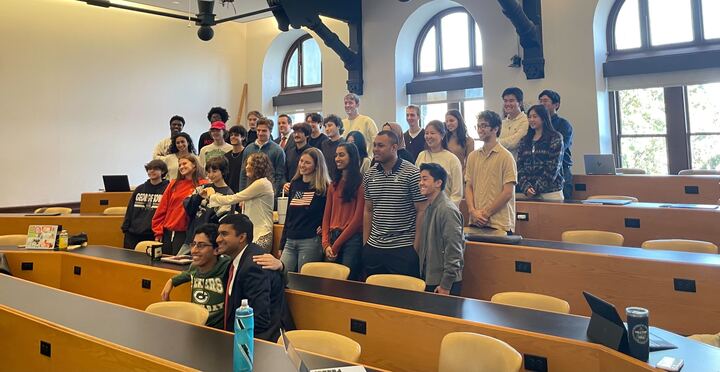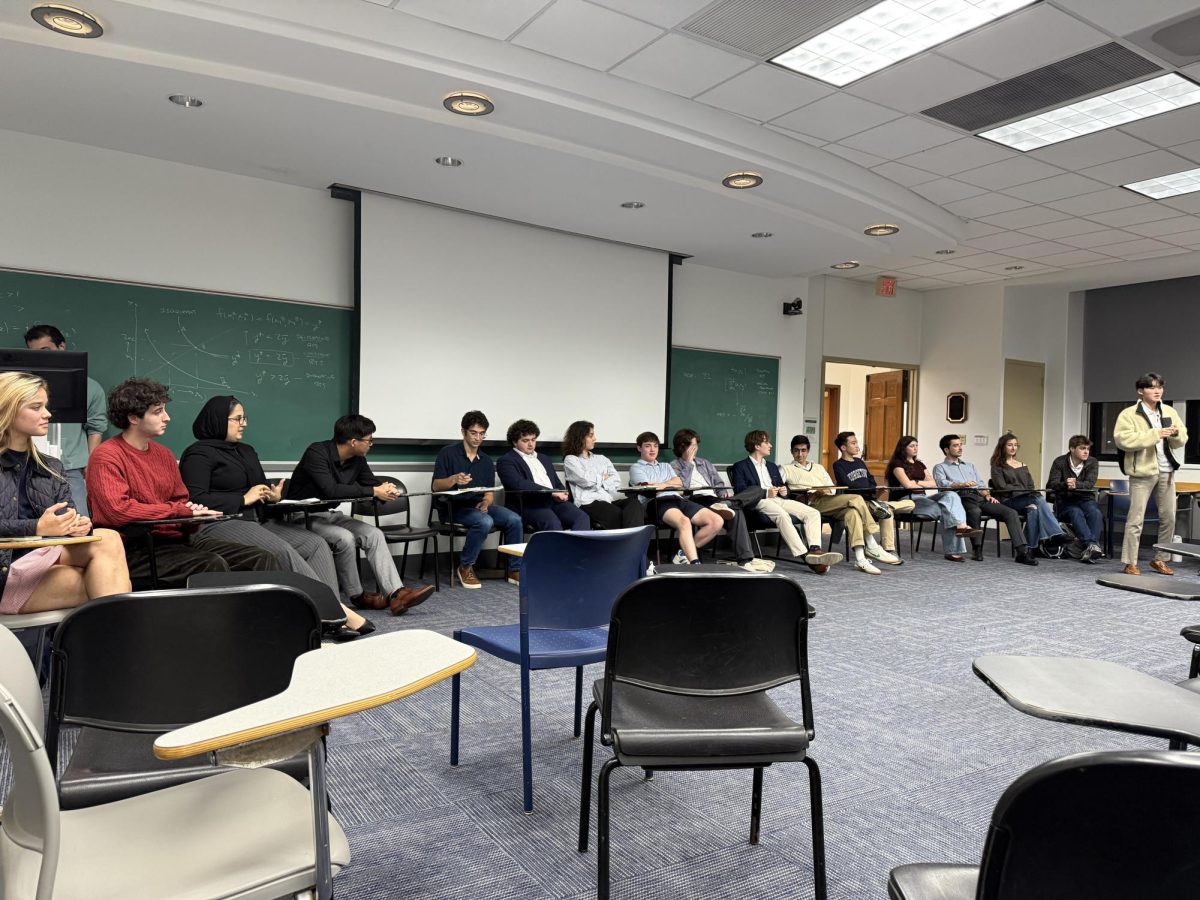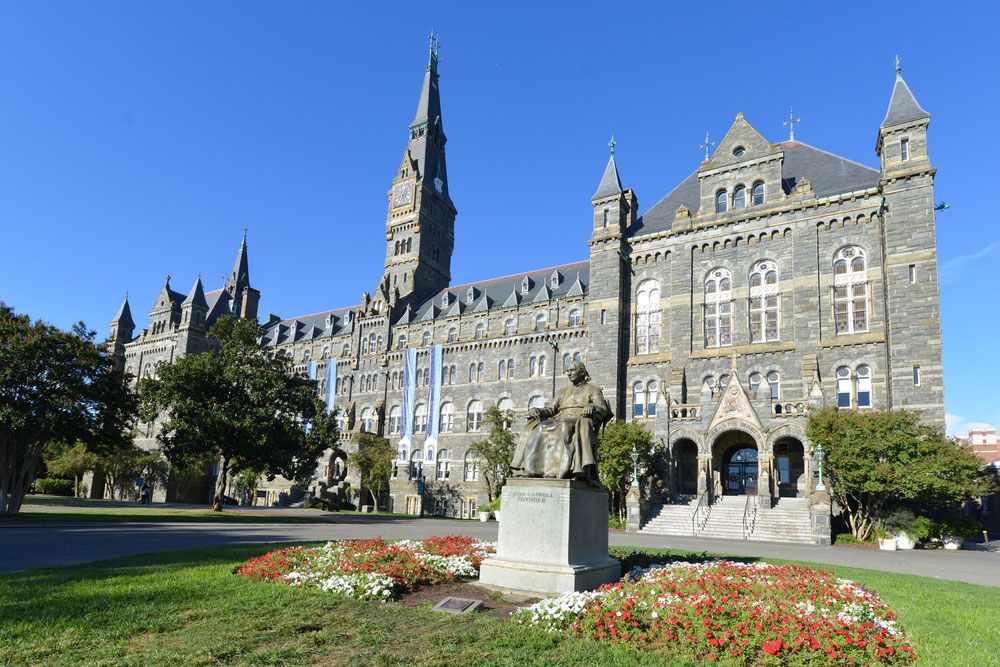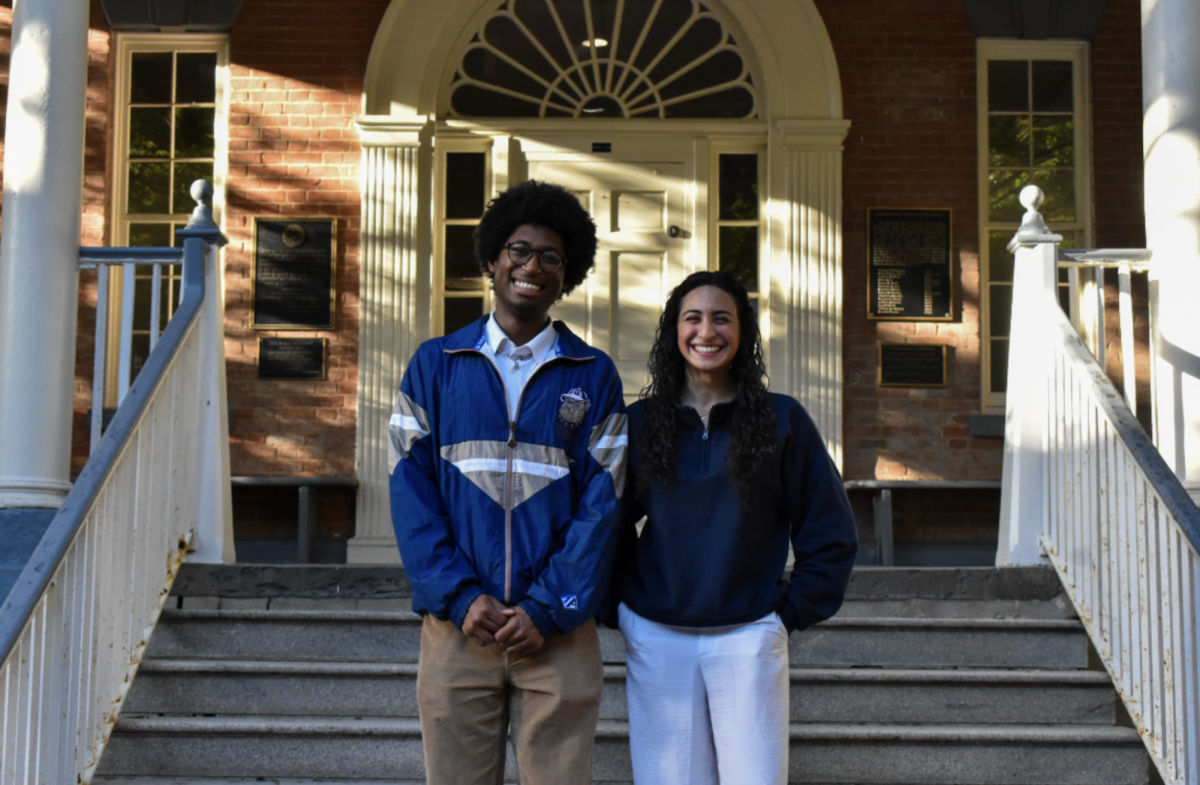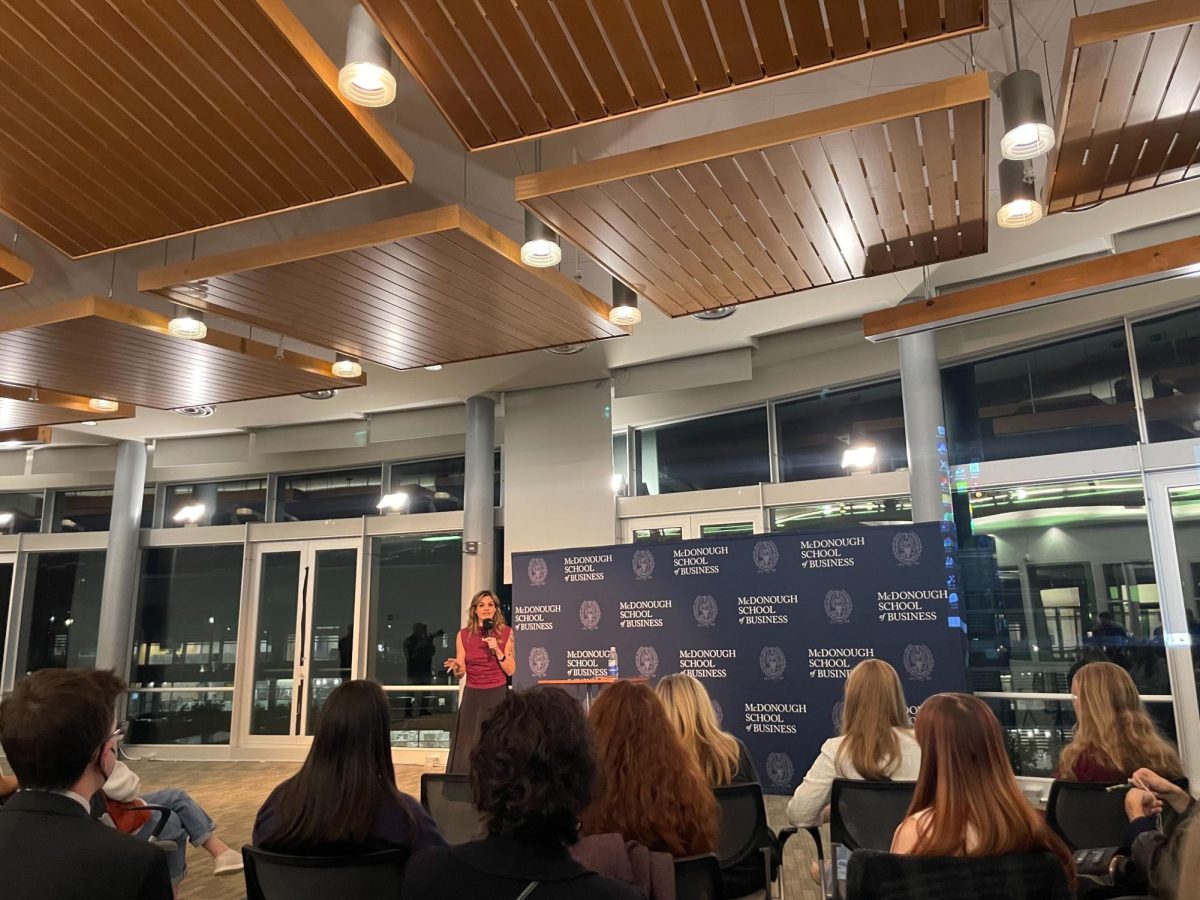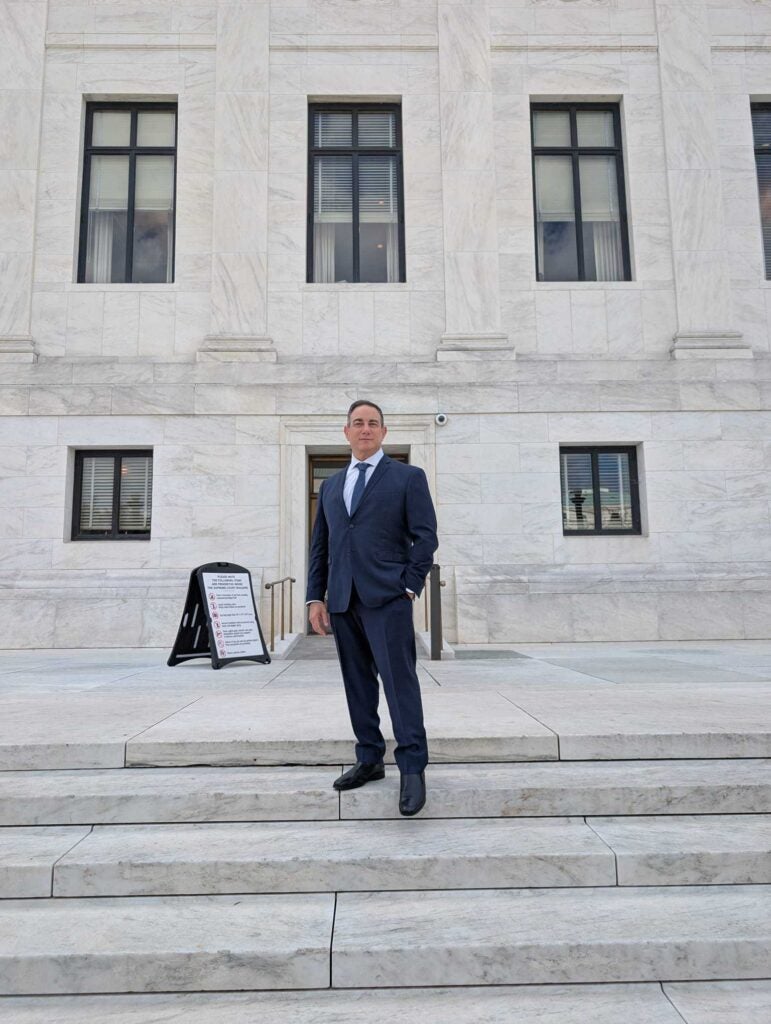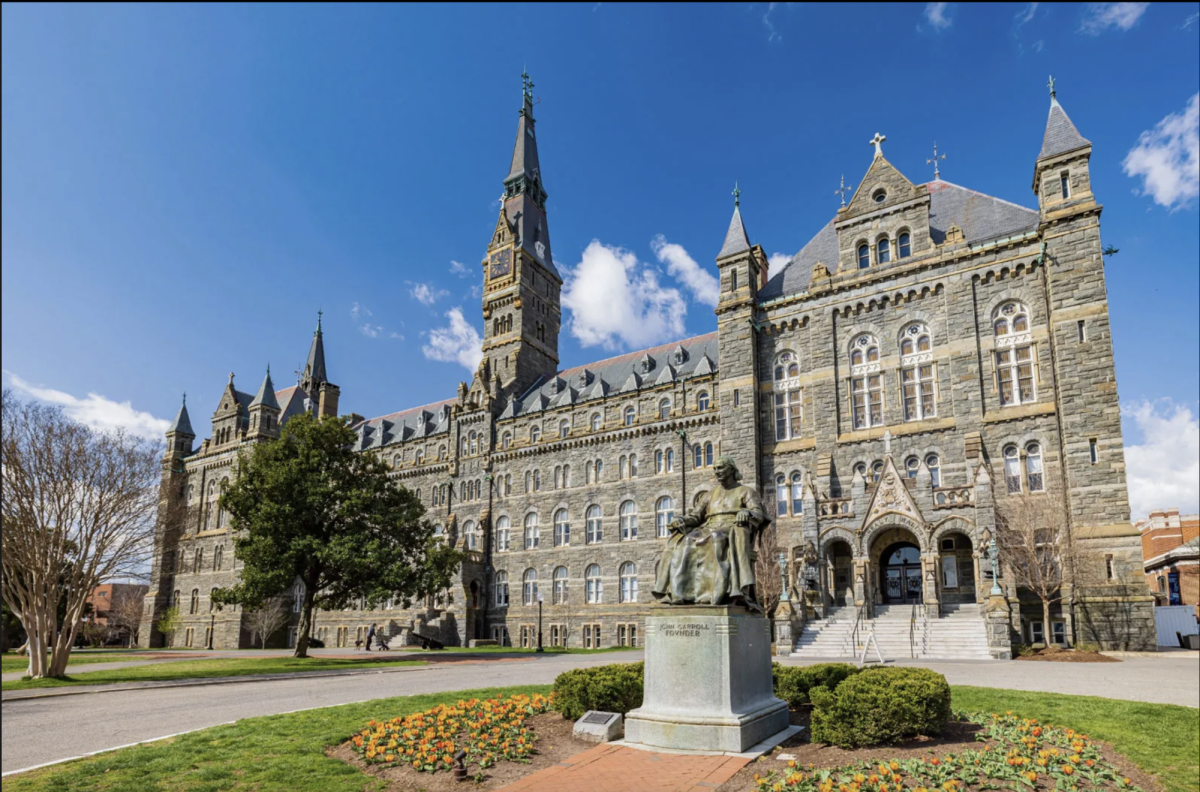First-year students voiced concerns about university facilities and dining at the Georgetown University Student Association (GUSA) town hall Oct. 25.
Ethan Henshaw (CAS ʼ26), GUSA’s president, and Amelia Snyder (SOH ʼ28), GUSA’s director of outreach, led the meeting, which aimed to introduce GUSA’s role on campus and how GUSA helps students. Around 200 students in attendance expressed concerns about on-campus dining, laundry prices and the cleanliness of first-year dorms.
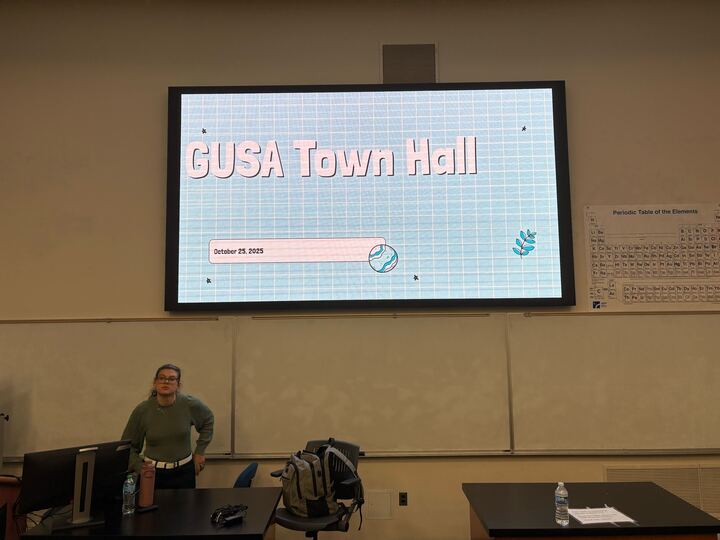
Snyder said she hoped the town hall would introduce first-years to GUSA and gather student feedback.
“We’re just going to cover what GUSA is, get some feedback from you all, share updates on what we’ve done and what we hope to accomplish in the future, and just how GUSA can be a resource for everyone,” Snyder said at the town hall.
Using anonymous polls, students submitted answers to questions about important issues facing their class.
After a poll that asked students which policy change they most hoped to see, Snyder said dining is a significant issue and recommended students work with and submit feedback to GUSA’s Dining Committee, which collaborates with Hoya Hospitality — the department that oversees on-campus dining.
“I see dining on there a lot,” Snyder said. “Using our dining board is a really great way if you have some specific issues to present or are just really frustrated and want to get involved in speaking with the admin, discussing dining and making a lot of change.”
Henshaw said GUSA is working with the university administration to lower laundry costs.
“We have been working on the laundry,” Henshaw said at the meeting. “I saw that come up there every time. I was talking with one of the vice presidents about working it into financial aid, so hopefully you will see that coming.”
Jayeon Yu (CAS ʼ29), who attended the town hall, said laundry allowance was her biggest concern, but she thinks GUSA heard the concerns about laundry price and will work to make a change.
“I put laundry money as the biggest issue, because I did the math and even doing laundry once a week, you still won’t make it to the end of the year,” Yu told The Hoya. “They did claim that these polls serve as data they can pitch to the administration, so I think they’ll do something with it.”
Henshaw said first-year students should join GUSA to help fix issues facing the student body.
“If you do have issues you seriously care about, you will see progress by joining,” Henshaw said.
The GUSA Senate swore in seven first-year senators Oct. 26 after releasing the Oct. 22-24 election results Oct. 25, and they will now be serving until April 2026.
Yu said the event would have been more useful if it had occurred before the election.
“They’re telling me what the Executive and Senate does, but I’ve already picked these people before I got to know what they’re doing, so it seemed a little useless,” Yu said.
Snyder said the newly established financial accessibility and equity committee, which advocates for students facing economic barriers, began after students expressed concerns about financial inaccessibility on campus.
“The brand-new financial equity committee came into place when a senator realized that it wasn’t just her who was having these issues, but a lot of people were having delayed responses about financial aid,” Snyder said. “This financial committee is working to meet with administrators similar to the dining committee and bring these issues up face-to-face.”
After a poll asking students what their top three priorities are, Snyder said students were most concerned with facilities, transportation and dining.
“I see on there 36% of you voted for facilities, transportation and dining, which seems pretty accurate to what you guys have said already,” Snyder said.
Henshaw said GUSA can sway the administration to make a change when enough students provide feedback.
“Obviously we are not an all-powerful organization, it’s not like do this and they’ll do it,” Henshaw said. “But when you have clear student feedback and data backing it, and you also have a good idea that you take to them and present, they do occasionally accept it.”


